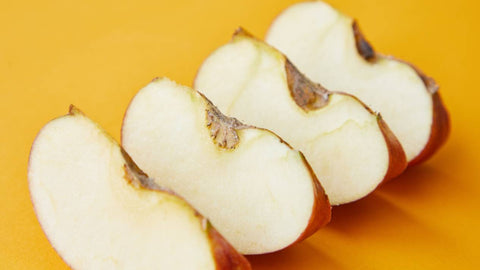When it comes to nutrition, dietitians tend to focus on what our clients should be eating MORE of, as opposed to what they should be cutting out. In fact, most people struggle with their health because they aren’t getting enough of the good stuff like fibre, fruits and vegetables, legumes, wholegrains, nuts and seeds and oily fish. Focusing on what you should be eating MORE of helps to eliminate or avoid the mindset of missing out. Here are the top five foods our resident dietitian Nicky wishes people would eat more of!
1/ Oily fish:
This includes things such as tuna, salmon, mackerel and sardines. They are rich source of a heart healthy fat called omega-3 fatty acids which have been shown to help:
- Reduce Triglycerides , an unhealthy fat in the blood
- Decrease LDL (bad) cholesterol levels
- Increase HDL (good) cholesterol levels
- Thin the blood (which may reduce blood clot formation) and
- Reduce inflammation in the body
They also appear to play an important role when it comes to mood with some research showing people who have the lowest intakes of omega-3 have a higher risk of developing depression.
2/ Legumes:
These are also known as pulses and include chickpeas, lentils, blackbeans, kidney beans and borlotti beans. Legumes are:
- High in dietary fibre which helps to nourish our gut microbes
- A good source of soluble fibre which can help lower blood cholesterol levels.
- A good source of carbohydrate and have a low glycaemic index (GI), which means they are broken down more slowly so you feel fuller for longer. This makes them a particularly good food for preventing and managing diabetes
- A good source of plant-protein, making them an ideal base to a vegetarian dish or a substitute for meat
- Good for boosting fertility with research showing swapping 25-30g of animal protein for plant protein can help increase your chances of conceiving
If you're interested in meals that provide a great source of fibre, help lower cholesterol levels and are a great source of plant protein. We have a range of vegetarian meals you will love! Such as our Vegan Roast Pumpkin & Chickpea Tabouli Bowl or Vegan Red Lentil Dahl
 3/ Fruit and vegetables:
3/ Fruit and vegetables:
Data from the most recent National health survey shows that only one in twenty (5.4%) adults are meeting the recommended serves of fruit and vegetables. Diets rich in plant-foods such as fruit and vegetables have been shown to reduce the risk of multiple health conditions including colorectal cancer, depression, type two diabetes and heart disease. They’re also nutrient dense providing a wide range of nutrients including fluid, fibre, folate, vitamins, minerals and special plant chemicals called phytochemicals.
4/ Whole-grains:
Many so-called ‘experts’ claim that grains are inflammatory and lead to weight gain. However, a 2017 study found a whole grain-rich diet reduces body weight and systemic low-grade inflammation. Research also shows that regular consumption of wholegrains:
- Protects against heart disease and stroke
- Reduces the risk of type 2 diabetes
- Improves gut health
- Lowers cholesterol and blood pressure
- Protects against some cancers
- Boosts your chances of falling pregnant
- Can help manage your weight
- Helps with satiety and fullness
- Helps to boost concentration
Good sources of whole-grains include rolled oats, quinoa, brown rice, spelt bread, sourdough bread, wholemeal pasta, cous-cous and seeded crackers.
 5/ Nuts:
5/ Nuts:
Most Australians are missing out on the health benefits of nuts with research showing only 2% of Australians are eating the recommended 30g each day.
Despite the common belief that nuts are fattening, research shows that eating nuts is not associated with higher weight, BMI, or waist circumference. In fact Australian research shows that greater nut consumption is associated with significantly higher intakes of key nutrients, including fibre, vitamin E, iron, magnesium, and phosphorus as well as heart-healthy polyunsaturated and monounsaturated fats.
Nuts are an essential component of a healthy diet and there is extensive scientific evidence for the health benefits of nut consumption.
For example research shows that a 30g handful of nuts most days of the week is associated with:
- A 29% reduced risk of Coronary Heart Disease (CHD)
- 21% reduced risk of Cardiovascular Disease (CVD)
- 13% reduced risk of type two diabetes
- Reduced risk of all-cause mortality
- Weight management and
- 15% reduced risk of total cancer.
For more handy health tips follow eatsense on instagram and facebook.
More information
Eatsense
Activate Foods
https://www.activatefoods.com.au/family
Shop 2 / 222 The Entrance Rd, Erina NSW 2250


